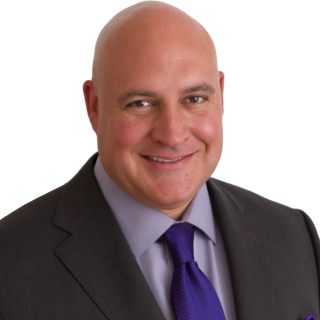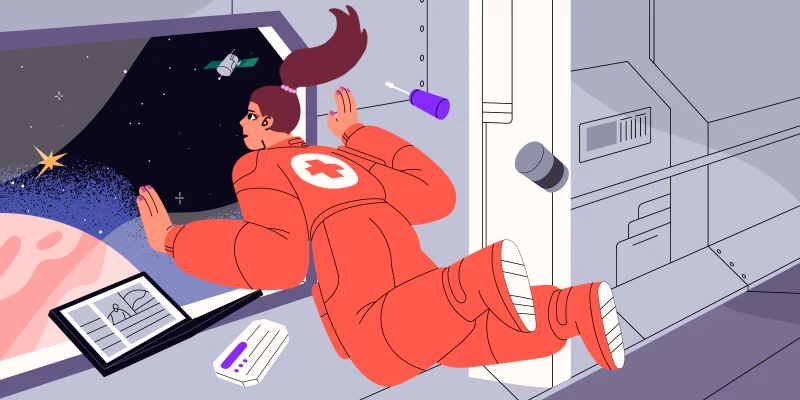
In order to help others be wary of what they might experience, it is sometimes necessary to share painful incidents from one’s own life. This would be one of those moments.
This is my story. It is difficult to talk about. I’ve not been able to write about it until now. I’m a disabled anesthesiologist who lost his career when my left median nerve stopped functioning properly. No more intubation, no more procedures, no more career.
I had two disability policies: a private individual policy and a group policy, provided by my employer. My dealings with these two companies have been day and night. My last operative day was October 15, 2009. I lost my career in 2010. My last attempt in getting to understand my group disability policy was in Federal Court — May 10, 2018.
My group insurance carrier hammered my dignity for years and in the end, in 2018, under ERISA Law, I lost again, this time in Federal Court. For me, the end was bittersweet. It was bitter because group disability companies do not have to tell you what will happen to your benefit when you begin to resume income sources. (Don’t worry, the best private individual disability carriers and companies will tell you exactly what happens.) But, thankfully, there is some sweetness. During my ordeal, I exhausted every means of understanding my group disability policy, and now I get to tell you what I learned in hopes of helping you prevent this tragedy.
More than eight years is a long time for an anesthesiologist to be frustrated, anxious, and to live in fear that his income source is in doubt. Anesthesiologists like certainty, really like certainty! I’m betting you like certainty, as well.
The group carrier is singled out because they are the provider that created an absolute nightmare for me, personally. This is not say that they are a bad company overall but as a disability claimant. My group disability provider would not assist me in understanding how my group disability policy functions when it comes to what happens should I generate income. Imagine yourself unable to use your education to generate income. Imagine that, if you did earn income, you have no idea what would happen, unsure of the fiscal pain you might cause your family if you even tried. The more insidious part is how this company and other subpar group disability companies accomplish this.
Step one: The Insurance Carrier creates the contract, the Policy. All disability policies are contracts. In fact, legally speaking they are unilateral contracts. That means one party generates or constructs the contract and the other party accepts it or does not. In unilateral contract construction the onus is on the generating party to get everything right or correct, not the accepting party. Generally, when these unilateral contracts come to the Courts, they are always interpreted ‘in the best light’ to the accepting party and against the constructing party. In my opinion, after attending business and law school, my group disability contract policy is a mess for a lot of reasons: missing wording (likely by simple error in my case), incongruent section references (purposely) and the worse part for me personally, the omission of calculating benefits affected by income (purposely).
What can you do about it in your career life? Pay attention to your employer’s group disability provider. The group carrier may change the language and provisions every year during the anniversary of the policy. Read your policy. If you have difficulty with the language, have it reviewed by an independent disability insurance broker or ask to speak with the group insurance broker that sold the policy to your medical or dental group. What you should do about it — Obtain your own high-quality individual disability insurance policy.
Step Two: Systematic avoidance of answering queries. A claims specialist gets assigned to you when you file a claim on a disability policy. In my specific case, a new one appeared about every 8–15 months. Envision yourself explaining everything again and again. I even got to talk with one ‘senior’ claims specialist who promptly sent me an email, in error I believe, saying a settlement would be better for me — and then it was redacted. A mistake, maybe, but its presence was psychologically and emotionally demoralizing for me. Eventually, even the best of us give up or give in. In error or not, a settlement would have meant stability, certainty, and income security for my family. It would have made a huge difference in my mental health. Disability attorneys and disability specialists read and re-read my policy to little avail. The collective conclusion: The only way to guarantee benefits under that group policy was to generate no additional income. I was bringing home 57% of previous income, and nothing was going into retirement. And I still had no answers on how to return to income generation without losing even more.
What can you do about if you find yourself a disability claimant under a group policy? You should retain an attorney the very first time you cannot get an answer to, “what happens if income is generated?” Having utilized an attorney from that point in time would have saved me years of frustration. Mind you, I consulted them but never hired one to be my go-between with the group carrier. Another thing — record all communications, including phone conversations from the very beginning. An attorney will do everything in writing with the company on your behalf, and it will all be recorded that way. Any required phone conversations should be recorded or occur in coordination with your attorney in their office.
Step Three: The judicial system. ERISA Law protects the Insurance Companies. While this is not really a surprise intellectually or even philosophically, it was difficult to understand emotionally and psychologically as a disability claimant with nowhere to get answers. The end result is that my group disability insurance carrier really does not have to tell me what happens in my own policy should I earn income and ERISA Law protects that company’s right to the omission of that information.
What can you do? Not much. ERISA Law is from the 1970s and designed to protect insurance carriers. My advice, do not get in the situation where suing under ERISA Law in Federal Court is your only option.
As a physician disability claimant, you’re stuck if you go on claim with a subpar group disability insurance carrier. Instead of the usual control, high level of understanding, and professional communications you are used to in a medical practice, you get, well, you get what you get and you’re stuck with it. I cannot fully express in writing the sheer frustration, anger, fear, disappointment and anxiety that my group disability insurance company caused in my life. I have, however, learned, in great detail, how to teach my colleagues in the medical profession to avoid it.
That brings me almost to the end of my nightmare. I recently learned that my previous employer held on to that insurance carrier’s product for years after I and another physician became claimants. While I was attempting to understand the policy and move forward with my life, dozens of physicians, my friends, and colleagues were exposed to the same disastrous group disability product. They have now moved on to another carrier, thankfully. And I’ve moved on to advising young doctors and advocating for those going on claim.
Look, and I do mean this from a business point of view, they are not a bad company, they are very profitable and some of their products and services are highly ranked. Their disability insurance product and service for the medical professional, however, leave very much to be desired.
Pictured above is dawn, my dawn… and that is today, a new beginning. Each day the Earth reminds us we get another shot at living today. For a time that was taken from me. On some days, it remains taken from me, still too distant to find. I allowed it, and they broke me on the inside. For years I have studied disability insurance, not out of love but out of sheer morbid curiosity and selfish intellectual understanding. For years, I have advised friends, physicians, and dentists to get and keep high quality individual disability insurance.
You have the power as a young physician or resident in medicine to completely prevent what happened to me from happening to you. You can prevent it from happening to your family and those you love and are responsible for in your life.
It’s time for me to wake up from a very long night. I will spend today, tomorrow and every day working in a new career teaching, advising, and advocating for medical professionals to have the best disability policies they can get to protect their greatest asset, their career income.
Retired from clinical anesthesiology by a disability in 2010, Dr. Yerington has turned his love of teaching and service to others to his family, colleagues and community. He speaks and educates groups and residency programs about the importance of great disability insurance.





